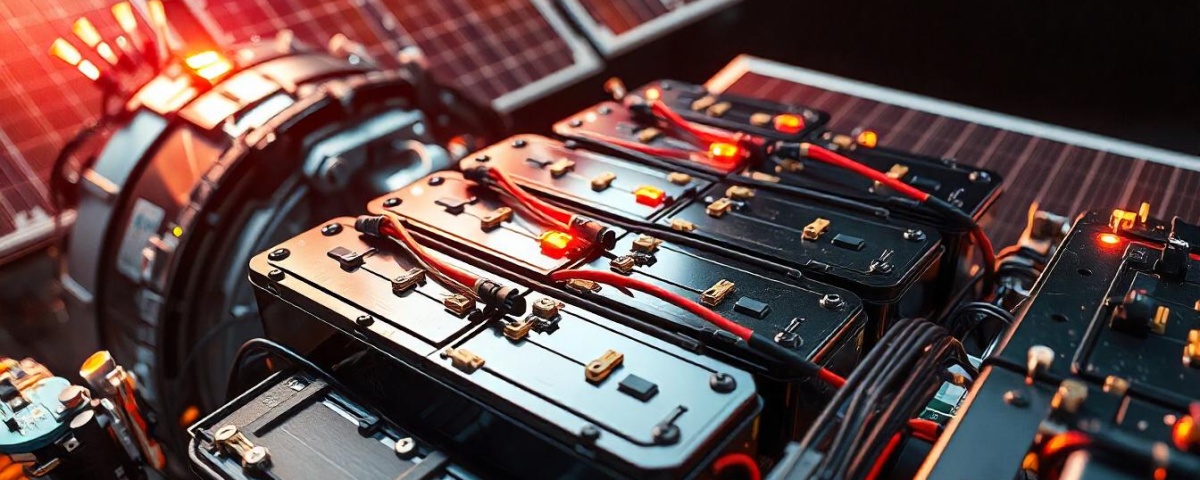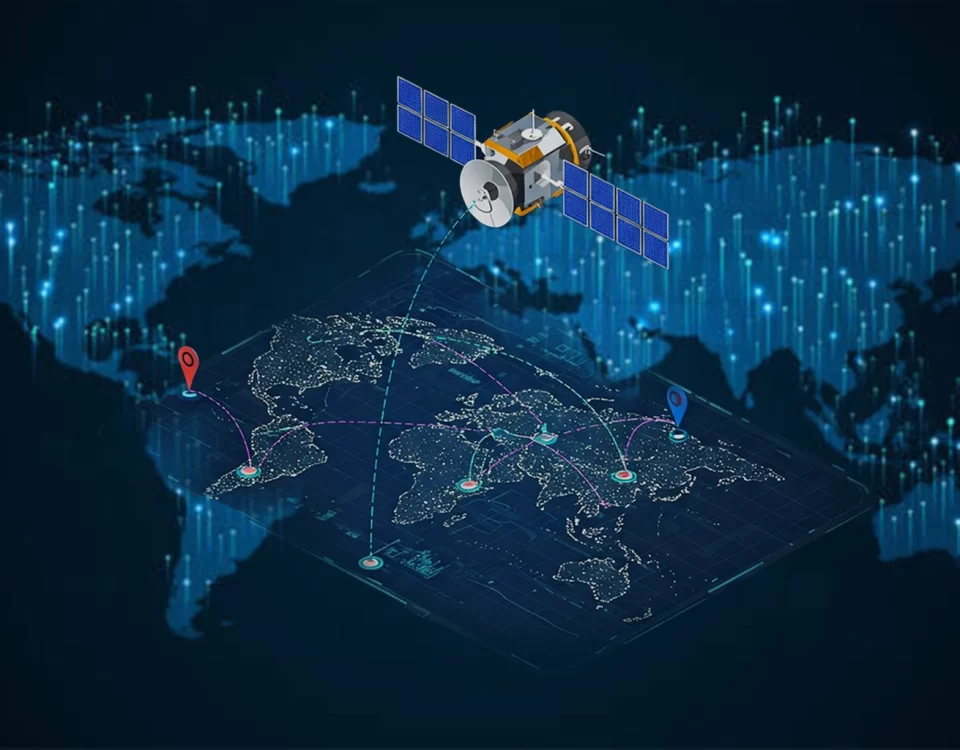
Applications of OPTICSatellite in remote sensing
January 26, 2025
Satellite thermal control system design tutorial
February 1, 2025Space technology is rapidly advancing, and satellites need power sources that are light, powerful, and dependable. Lithium-ion (Li-ion) batteries have become the go-to choice, changing how satellites are powered and opening up new possibilities in space exploration. This essay will explore the key benefits of using Li-ion batteries in satellites, looking at how they affect mission planning, performance, and the future of space travel.
Unparalleled Energy Density
One of the most important advantages of Li-ion batteries is their high energy density. This means they can store a lot of energy in a small space and weight. Compared to older battery types, lithium-ion batteries can store much more energy for their size. This has several significant benefits:
- Lower Launch Costs: Lighter satellites need smaller rockets to launch, which saves a lot of money.
- Increased Payload Capacity: With lighter batteries, satellites can carry more equipment, such as advanced scientific instruments or better communication systems.
- Longer Mission Lifespan: More energy storage allows satellites to operate for longer periods, making space missions more worthwhile.
Superior Cycle Life and Performance
Li-ion batteries last much longer than older battery types. They can be charged and discharged many times before losing a significant amount of their power. This is very important for satellites, which often operate for many years.
lithium-ion batteries also perform better in several ways:
- High Power Output: They can provide a lot of power quickly, which is needed for systems like communication transmitters and engines that require a lot of energy.
- Fast Charging: lithium-ion batteries can be charged quickly, reducing the time they are not available for use.
- Low Self-Discharge: They hold their charge for a long time, minimizing energy loss when they are not actively used.
Li-ion batteries Enhance Reliability and Safety
lithium-ion batteries have become much safer and more reliable. Special systems called Battery Management Systems (BMS) use smart technology to monitor and control the batteries, preventing problems like overcharging or overheating. This makes the entire satellite system safer and more dependable.
Enabling New Mission Profiles
Li-ion batteries also have a low ‘memory effect; which means you can charge them at any time without affecting their performance. This makes it easier to manage the batteries and improves how efficiently the satellite operates.
The excellent performance of lithium-ion batteries has made new and exciting space missions possible. For example:
- Small Satellites: lithium-ion batteries have been essential for the development of small satellites, allowing these tiny spacecraft to carry out complex missions that were not possible before.
- Deep Space Exploration: lithium-ion batteries are increasingly used in deep space missions, providing the power needed for long journeys and exploration of distant planets.
- Electric Propulsion: Li-ion batteries are powering a new generation of engines, making spacecraft maneuvers more efficient and precise.
Technological Advancements and Future Prospects
Scientists are constantly working to improve lithium-ion batteries for use in space. Here are some key areas of focus:
- More Power: Researchers are developing new materials to make Li-ion batteries store even more energy, allowing for more powerful and capable satellites.
- Better Temperature Control: Scientists are developing advanced ways to manage the temperature of lithium-ion batteries, ensuring they work well in the extreme temperatures of space.
- Radiation Resistance: Scientists are working to make Li-ion batteries more resistant to radiation in space, which can damage them over time, ensuring they remain reliable for longer periods.
Challenges and Considerations of Li-ion batteries
While Li-ion batteries have many benefits, there are some challenges to consider:
- Temperature Control: Keeping Li-ion batteries at the right temperature in space, where temperatures can change drastically, requires careful temperature management.
- Radiation Damage: Radiation in space can damage lithium-ion batteries over time.
- Safety Risks: Even though they are much safer now, the possibility of overheating and other safety problems needs to be carefully addressed.
lithium-ion batteries have completely changed how we power satellites. They offer incredible energy storage, perform better than older batteries, and are very reliable. This has led to a new era of space exploration, with smaller but more powerful satellites capable of performing increasingly challenging missions.
Continued research and development will make Li-ion batteries even better, allowing for even more ambitious space missions in the future. As space exploration continues to advance, lithium-ion batteries will undoubtedly remain crucial for powering satellites, driving innovation and expanding the limits of human knowledge.




